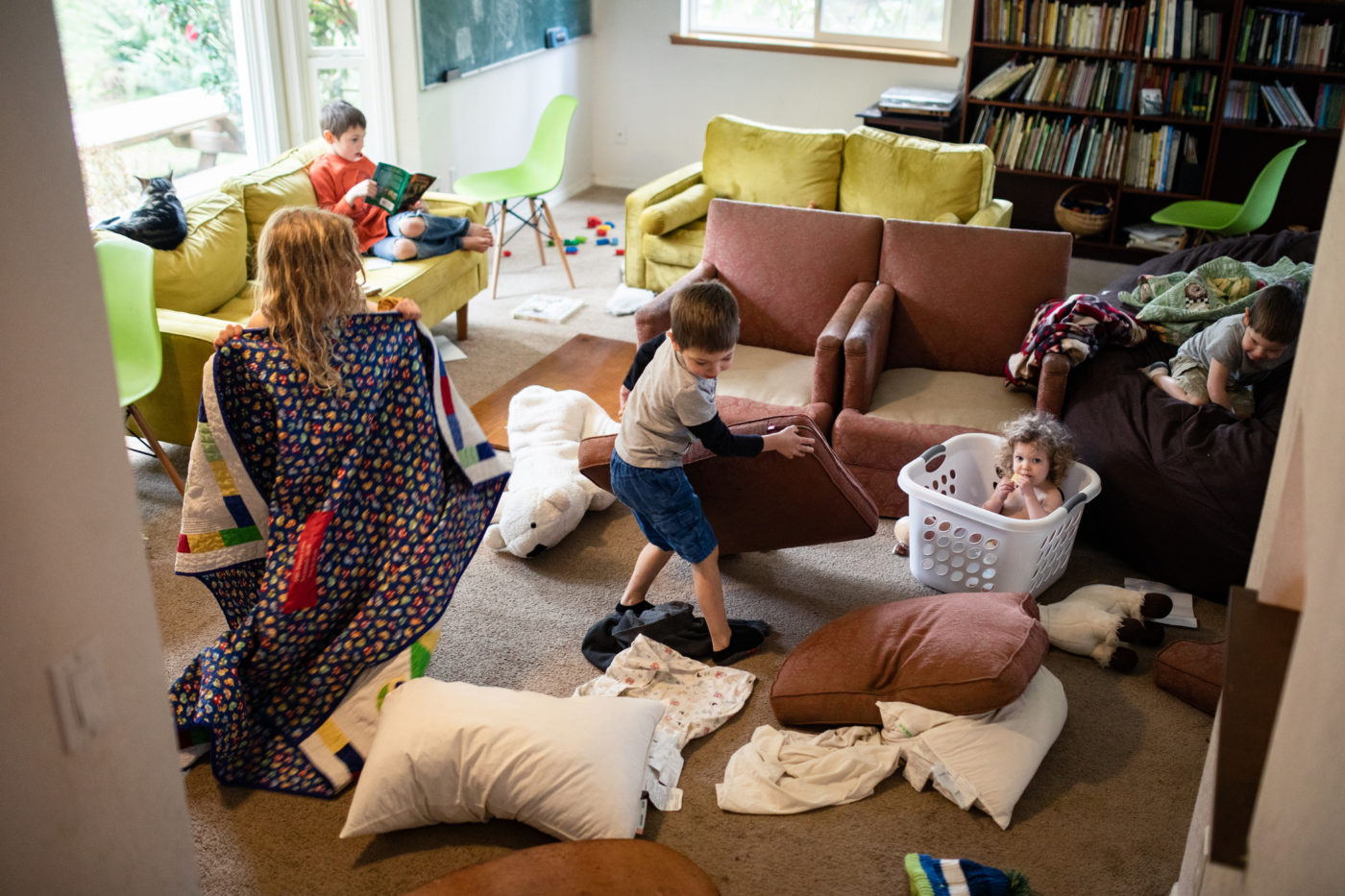My wife and I have been working in the foster care system for about five years. In all the situations we’ve seen, chaos is the common factor. Many of the kids have been left to parent themselves because their parents were absent, uncaring, or simply unable to serve that role. And, of course, without effort, everything tends toward chaos (see a teenager’s bedroom).
And while too much order can be overbearing, not enough order can leave a child insecure and unnerved. The right boundaries create a sense of safety and direction. When you don’t provide those boundaries for kids, their worlds can descend into chaos. Here are 5 ways you can create chaos in your child’s world.
1. Don’t enforce a consistent bedtime.
Bedtime is the worst. If children could raise up armies, wars would’ve been fought over it. I remember nights when our kids were beside themselves with sorrow because their friends got to go to bed later. They cried. They shouted. It was as if it were fundamentally unjust to expect them to go to bed at 9 p.m. We were tempted to shrug our shoulders and say, “He’ll fall asleep when he’s tired.”
However, when you’re setting boundaries for kids, bedtime is critical. You know all the stats about sleep. It’s as important for development as they say. Enough sleep and your body will thrive. Too little and things get chaotic, both internally and externally, quickly.
2. Don’t monitor screen time.
Screen time is tough to monitor because the game makers and app builders make their money by keeping you and your child glued to the screen. Additionally, screen time is helpful if you need to get something done and your kid is bored or you just need a break. My wife and I would always say, “We won’t be those parents who babysit with screens.” Then one day we realized you can get a lot done while Dora is on. And while a half-hour of television won’t hurt anyone, the data around the amount of screen time our kids get is shocking. According to the CDC, kids spend between six and nine hours on screens every day. Even if your kids are on the low end of this, it’s troubling.
Of course, the big problem here is that too much screen time is just plain bad for kids’ cognitive development, their creativity, and even their anxiety and depression levels. Their lives become chaotic. Your child will hate boundaries around screens like he or she hates vegetables. But like veggies, it’s key to their health.
3. Make sure they are busy.
Dads can often feel like their job as a parent is to ensure their child is keeping busy. We want them involved in clubs, sports, service. But this busyness can create a sense of chaos in your child’s world. What our kids really need, as much as they will push back, is more boredom.
Boredom is good for kids. It creates space for creativity and forces them to engage parts of their brains otherwise unbothered. While it can feel counterintuitive to say allowing your child to be bored is an antidote to chaos, it’s true. Consistent downtime can create much-needed peace in your child’s frenetic world.
4. Don’t have a set mealtime.
One of the casualties of our busy lives is mealtime. If you’re like me, it’s easy to roll your eyes at that and say, “If you knew my family’s schedule!” I get it. Who has time for a sit-down meal? But the lack of consistent daily connection that naturally happens over a meal can create a chaotic mess of an evening.
Mealtime can serve as a grounding practice for your family. It creates a natural space for you to look at one another, take a breath, and ask a question. It also ensures your kids are eating decent food. Charles Duhigg would call it a “keystone habit.” When you do these practices consistently, they will reorder the rest of your world in ways that will be a real gift.
5. Allow them to choose friends over family.
Left to their own devices, most kids will choose to hang out with their friends over their family. A great way to create chaos in your child’s world is to simply allow them to choose friends over family every time. Kids need consistent time with you in order to learn and simply be connected.
This means sometimes you’re going to have to place boundaries for kids around the amount of time spent with friends. Let’s face it—you’re not as cool as your kids’ friends, so they won’t love it. But time with you is still critical for them to feel rooted and loved.
Sound off: What are other ways you can help your child’s world descend into chaos?











Huddle up with your kids and ask, “What are our family habits?”